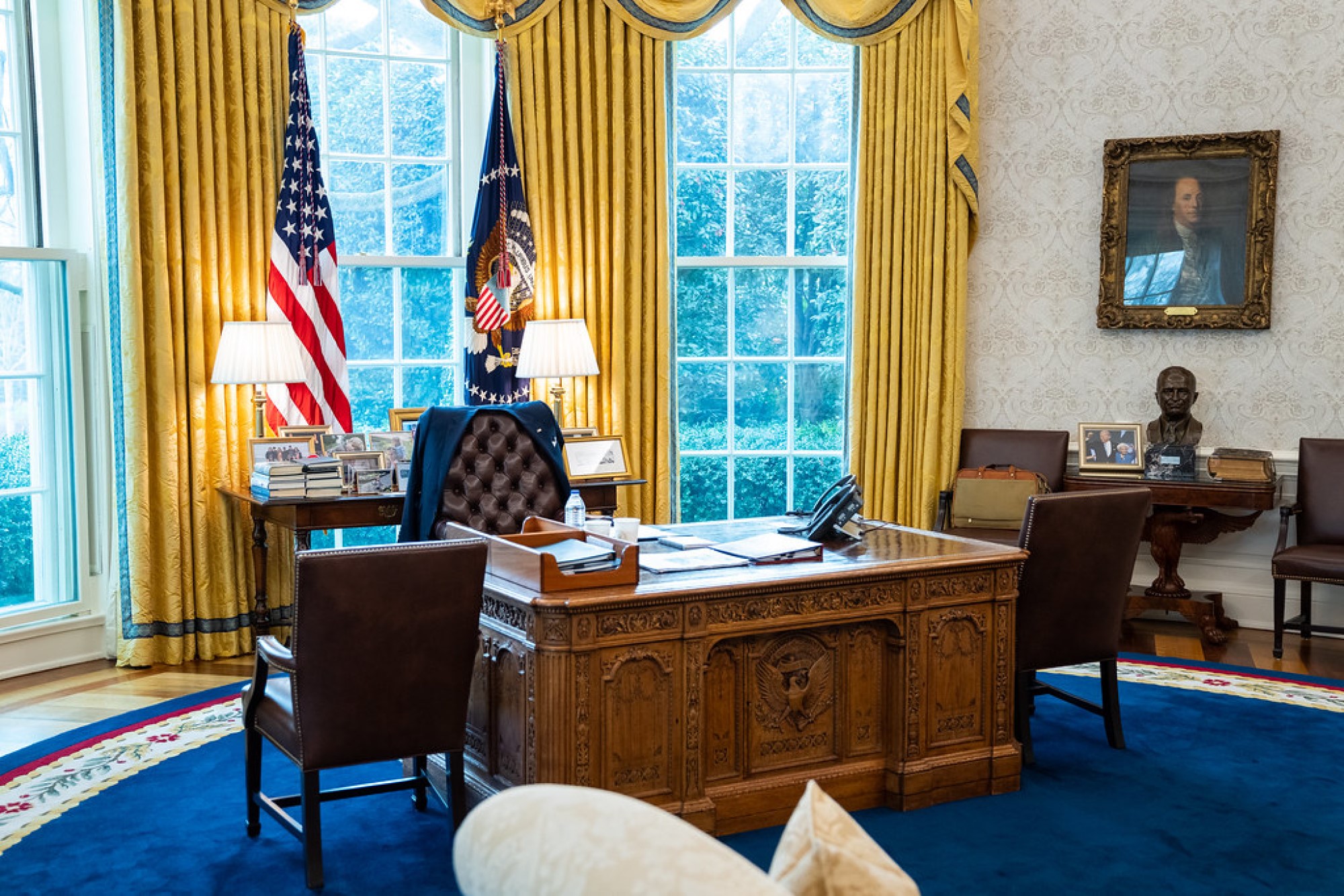Sex Differences or Sexism? On the Long Wait for a Female President
In her recent New York Times piece, “Britain 3, America 0,” Gail Collins laments the failure of the United States to elect a female president. Meanwhile, traditional old Britain has recently acquired its third (Conservative) female prime minister, Liz Truss.
Collins’ frustration will strike many readers as obviously correct, perhaps even boringly correct. If, counterfactually, we lived in a society without sexism, then surely we would have had at least one female president by now. If that’s right, then sexist stereotyping plays some role in explaining the fact that we haven’t. But are there other explanations than sexism?
According to the Center for American Women in Politics’ Debbie Walsh, the problem is “that women are seen as good at getting along with other people, but not necessarily at running things.” In other words, inaccurate sexist stereotypes explain the nation’s failure to elect a female president.
The trouble with this explanation is that psychological research partly confirms certain clichés about men and women.
While both sexes have near-identical average scores for some traits, e.g., openness/intellect (the ability and interest in attending to and processing complex stimuli), studies repeatedly find significant differences between the sexes for other traits. For instance, on average, women are more “agreeable” than men, meaning they have a higher tendency toward “cooperation, maintenance of social harmony, and consideration of the concerns of others.” But men are, on average, more assertive, which many – rightly or wrongly – consider a key leadership trait.
There are competing explanations for these sex differences. Some think they are explained by human biology. Others contend that they are cultural artifacts, ways of being that men and women learn from society as they grow up. But most psychologists now think that a complex mix of nature and nurture explains these average differences between men and women. But whatever the cause(s), there is little dispute that these measurable differences exist. On this basis, some have concluded that our society is not sexist because “Women really are different from men!” And they think that this fact – and not sexism – explains things like why we’ve not had a female president.
But this conclusion would be premature. There’s still plenty of opportunity for sexism to be doing some explanatory work.
First, it might be that our assumptions about what makes a good leader are sexist. We might tend to overvalue the “masculine” traits and undervalue “feminine” traits. Perhaps women’s greater tendency to agreeableness (“cooperation, maintenance of social harmony, and consideration of others”) is precisely what we need in a leader in these divisive times, but we keep electing less suitable but more assertive “strong men.” If we systematically overvalue the traits more common in men and undervalue those more common in women, we would be putting the pool of female candidates at an unfair disadvantage. This is one way in which sexism can operate even if there are sex differences.
Second, and I think far more significantly, individual men and women are not the averages of their sex. An average is just an average, and nothing more. Within any group as large as half the population, there is obviously a huge amount of individual variation. There are many highly agreeable and unassertive men and many highly assertive and disagreeable women. Think about it — you probably know people who fall at all different points on this scale.
Even if, hypothetically, traits more common in men did make them more suitable for the role of president, then, given great individual variation, we should still expect some presidents to have been women, even if not half.
This brings me to another way that sexism can operate on top of sex differences. Imagine a voter who sincerely thinks that assertiveness is a key trait for a president. After all, a president must make difficult and important decisions each day, often under terrible pressure. Imagine this person could never vote for someone who they didn’t think was highly assertive. That seems like a reasonable view.
But sexism could still be at play. If the average woman is less assertive than the average man, then we might tend to overlook the leadership potential of highly assertive women because we assume, given their sex, that they are less assertive than they actually are.
Given that female politicians have, presumably, had to overcome certain challenges their male counterparts have not, you might even expect female politicians to be particularly assertive, perhaps even more than their male counterparts. Britain’s controversial first female Prime Minister, Margaret Thatcher, certainly lends some credence to that possibility.
To explain why we’ve not had a female president, then, we can’t simply appeal to either sexism or sex differences. The relationship between sexism, sex differences, and political outcomes is more nuanced. We don’t need to dispute the psychological evidence of sex differences in order to maintain that sexism is a real problem with damaging political consequences. It might be that our assumptions about the traits needed for leadership are sexist and biased. Or it might be that our awareness of group averages blinds us to individual differences, preventing us from fairly judging the merit of individual female political candidates. Yes, there is significant psychological evidence for sex differences in traits that are commonly regarded as important for leadership. But sexism could still be unjustly distorting political outcomes. As is so often the case, the partial explanations of political events and outcomes that we are so often provided are excellent at getting us riled up and reinforcing our loyalty to our political tribe, but they’re much worse at helping us to understand the society of which we are a part.





